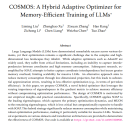I sort of disagree with the article.
"Software doesn't make money in China" is not really true. Just look at Byte Dance, or Tencent, or even Alibaba (an e-commerce platform is software). China's social media and gaming industries are huge, and they're all about software. People pay tons of money for software.
But the difference with the US is, it isn't the only way to make money, because China still has the world's strongest manufacturing sector, and state priorities are to preserve that sector. Consequently, Chinese AI companies have an entire field of low hanging fruits to pick, which does not exist in the US.
Thus, when an American AI company develops a solution, the best use case they can think of is make an app out of it. That's because they don't have much of an industrial sector to begin with, so how else are they going to productize? Chinese companies have options, and commonly, the best option is the sector that US companies have no expertise in because then you're competing with nobody but other domestic players.
If this situation was allowed to develop organically, we'd indeed see specialization of the sort the article is talking about - Chinese AI companies would orient themselves towards manufacturing and US companies would orient themselves towards services because of comparative advantage - China has better expertise in manufacturing, while the US has better expertise in services, so it'd make sense for the US to buy manufactured products from China, and for China to integrate with services in the US.
But as we know, the situation wasn't allowed to develop organically. The US made trade with China a national security issue, and tried to force a decoupling. At the same time, China also banned US services from the Chinese ecosystem. The result is that comparative advantage was overwritten by politics, and now Chinese AI companies do have incentives to serve both domestic manufacturing industries and domestic service industries.
Hence, what you will see in the coming years is not a one-way specialization in China towards industrial AI. Deprived of the ability to work with cutting edge US AI companies, Chinese service companies will turn to Chinese AI companies, which will strengthen China's hand in consumer AI including chat bots, AI companions, and social media tools. We're already starting to see this happen with Deep Seek, and the trend will only continue since it makes no sense for Chinese service companies to subject themselves to the costs and risks associated with using US AI.
The end result is that China will become competent and self-sufficient in both service and industrial AI, and leverage this simultaneous expertise for additional synergy and efficiency. Presuming China succeeds in overcoming the challenges in this sector, the consequences for US AI companies will be catastrophic.
The article itself and its main thrust regarding Chinese industry's focus on actual productivity does mirror or echoes what Microsoft C.E.O. expressed publicly. He's now come out somewhat agnostic with their AI becoming A.G.I. as some sort of gimmicky and even questioning the actual value the current iteration of AI has brought to the developed countries economies:
The body of the message below is lifted entirely from a Yahoo article. DeepSeek did a tremendous body blow against the American AI companies and their investors who presumed and thought they had a platinum mine:
Microsoft CEO Satya Nadella, whose company has invested billions of dollars in ChatGPT maker OpenAI, has had it with the constant hype surrounding AI.
During an appearance on podcaster Dwarkesh Patel's show this week, Nadella offered a reality check.
"Us self-claiming some [artificial general intelligence] milestone, that's just nonsensical benchmark hacking to me," Nadella told Patel.
Instead, the CEO argued that we should be looking at whether AI is generating real-world value instead of mindlessly running after fantastical ideas like AGI.
To Nadella, the proof is in the pudding. If AI actually has economic potential, he argued, it'll be clear when it starts generating measurable value.
"So, the first thing that we all have to do is, when we say this is like the Industrial Revolution, let's have that Industrial Revolution type of growth," he said.
"The real benchmark is: the world growing at 10 percent," he added. "Suddenly productivity goes up and the economy is growing at a faster rate. When that happens, we'll be fine as an industry."
Needless to say, we haven't seen anything like that yet. OpenAI's top AI agent — the tech that people like OpenAI CEO Sam Altman say is poised to upend the economy — still moves at a snail's pace and requires constant supervision.
So Nadella's line of thinking is surprisingly down-to-Earth. Besides pushing back against the hype surrounding artificial general intelligence — the realization of which OpenAI has made its number one priority — Nadella is admitting that generative AI simply hasn't generated much value so far.
As of right now, the economy isn't showing much sign of acceleration, and certainly not because of an army of AI agents. And whether it's truly a question of "when" — not "if," as he claims — remains a hotly debated subject.
There's a lot of money on the line, with tech companies including Microsoft and OpenAI pouring hundreds of billions of dollars into AI.
Chinese AI startup DeepSeek really tested the resolve of investors earlier this year by demonstrating that its cutting-edge reasoning model, dubbed R1, could keep up with the competition, but at a tiny fraction of the price. The company ended up punching a $1 trillion hole in the industry after triggering a massive selloff.
Then there are nagging technical shortcomings plaguing the current crop of AI tools, from constant "hallucinations" that make it an ill fit for any critical functions to cybersecurity concerns.

